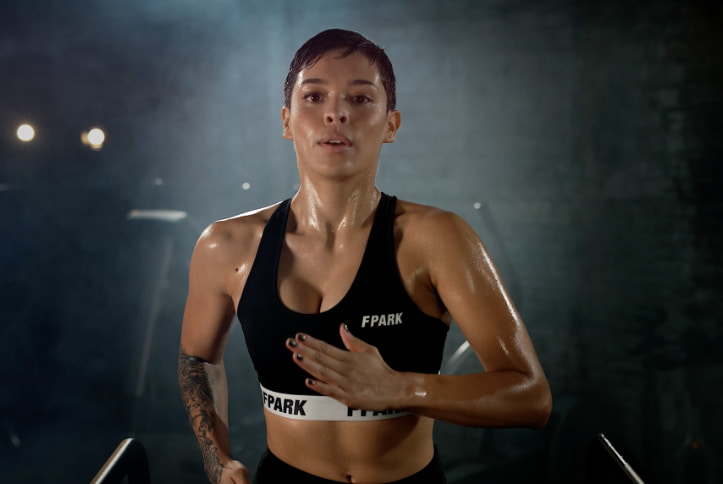La Nouvelle Campagne TV musclée de Fitness Park
Notre enseigne, FITNESS PARK, a repris la parole en télévision depuis le 2 janvier avec un spot de 30 secondes et 3 spots de 20 secondes, annonçant le top départ des bonnes résolutions sportives 2019 !
Conçue par notre agence de communication EVOLVE, cette nouvelle campagne TV met en scène 3 disciplines phares de nos Clubs FITNESS PARK, à savoir le cardio training, la musculation et l’un de ses concepts intégrés, le Fight Park.
Le tout en mettant en lumière 3 de nos 15 égéries 2019, qui ne sont autres que des adhérents de nos clubs, et en restant fidèle à notre positionnement qu’est “le dépassement de soi”.
Accompagnée par la société de production 2witness, nous avons par ailleurs décidé de miser sur une technologie vidéo innovante !Nous avons couplé le bras robot BOLT High-Speed Cinebot, qui peut se déplacer en une fraction de seconde en suivant le mouvement d’un sujet afin de filmer son déplacement, avec une caméra Phantom capable de filmer en 1000 FPS.De quoi réaliser des ralentis et procurer des images d’une qualité exceptionnelle !

«Nous souhaitions montrer qu’au-delà des apparences, le dépassement de soi, et non seulement le fitness, permet l’épanouissement de chacun. Nos 3 égéries, et donc adhérents, transmettent dans cette campagne toute leur énergie, leur force, leur motivation et leur amour du fitness tout en étant en parfait accord avec le profil de nos adhérents à travers la France. Des séquences filmées par un équipement de haute technologie pour sublimer leurs émotions, capter les moments intenses et bien réels qu’ils peuvent vivre dans nos salles.» explique Jean-Philippe Ferrier, notre nouveau Directeur Marketing et Communication de l’enseigne Fitness Park.
Ciblant les Millennials, nous avons opté pour une diffusion TV sur les chaînes de la TNT plébiscitées par nos adhérents (NRJ12, W9, TFX, C8, …) couplée à un dispositif digital soutenu en vidéo online.
Notre campagne a été visionnée du 2 au 21 Janvier 2019 sur W9, 6ter, NRJ12, NRJ Hits, C8 Star, la chaîne L’équipe, BeinSports, MTV, MTV Hits, Game One, BET, J-One et TFX.
L'Equipe Fitness Park
 Offre spéciale : Les 4 premières semaines à 19€
Offre spéciale : Les 4 premières semaines à 19€


